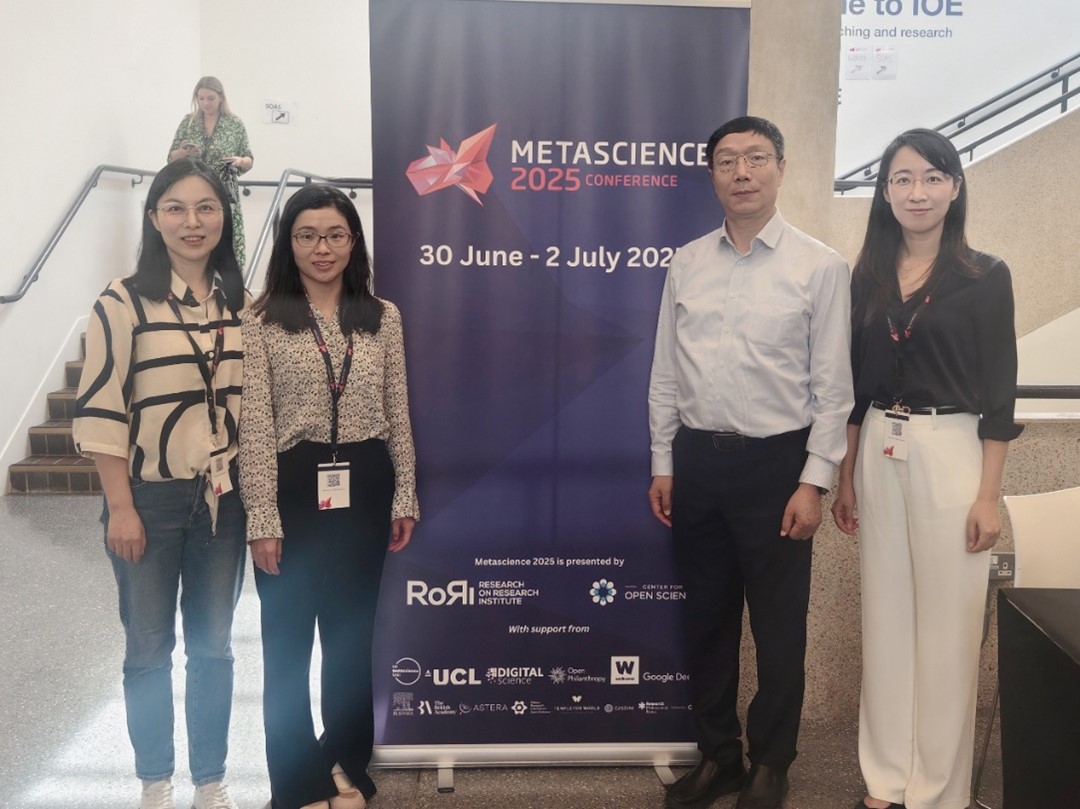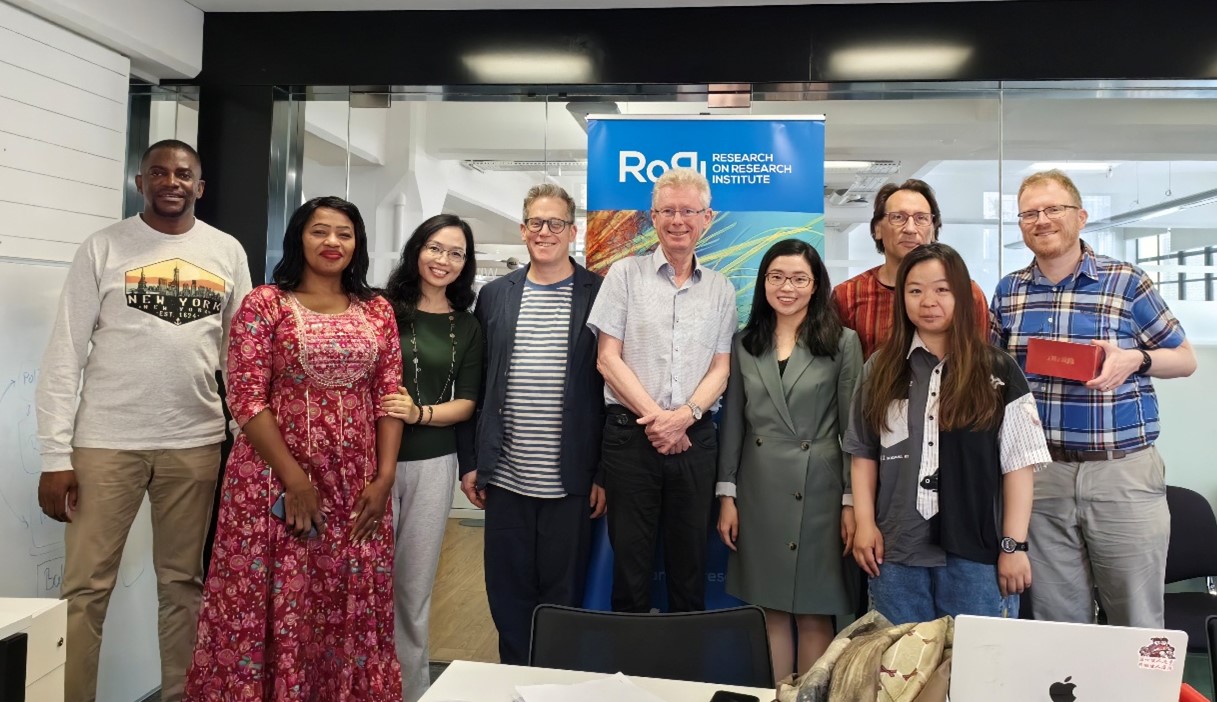International Collaboration on Research Policy Strengthened at Metascience 2025
June 30 to July 2, Metascience2025 was held in London, making the 4th metascience meeting since its inception in 2019. This event attracted 840 attendees from over 60 countries and regions, representing government agencies, universities, foundations, technology companies, and publishing groups, and drew numerous leading international experts from science policy and innovation fields. The conference received more than 500 proposals, hosting over 60 parallel forums and 12 thematic roundtable meetings. The conference’s agenda covered a range of cutting-edge topics, including AI-enabled science, research incentive systems, interdisciplinary collaboration, and research ethics.
A research team led by Professor LI Xiaoxuan from the Institutes of Science and Development, Chinese Academy of Sciences (CASISD), participated in this conference. Professor Aruhan delivered an oral presentation entitled “Funding Patterns and Research Performance in Mission oriented Basic Research: Evidence from China” in the “Money Matters: Funders and Funding Mechanisms” session.
Professor Aruhan’s study introduces an innovative “Goal achievement” indicator to measure the completion degree of mission-oriented basic research goals and constructs a three-level indicator system for evaluating the performance of mission-oriented basic research. The result shows that in terms of funding mechanisms, centralization at the project level and decentralization at the institutional level are more conducive to producing better-performing mission-oriented basic research.
The research received positive comments from the academic community, including Associate Senior Researcher Ismael Rafols Garcia from Leiden University and Associate Professor Ohid Yaqub from the University of Sussex. Dr. Ismael mentioned that the new indicator system enriches the measurement of the completion degree of mission-oriented goals, which is of great significance.
In addition, Professor XU Fang also presented on “How Do Different Types of Experts Contribute in Research Assessment? An Empirical Analysis of 300 Experts’ Assessment Behaviors” in the session “Peer Review: Pressures and Possibilities”.

CASISD Research Team
Professor Aruhan also participated in a strategic dialogue with researchers and policymakers from the United Kingdom, the United States, Japan, Spain, and Namibia, focusing on budget performance evaluation, funding allocation mechanisms, and funding instruments. The participants reached a consensus on strengthening collaboration in academic research and sharing international experience in science policy development. Professor Takahiro Ueyama from the Japan’s Council for Science, Technology and Innovation (CSTI) also expressed strong interest in deepening future cooperation.

Strategic Dialogue